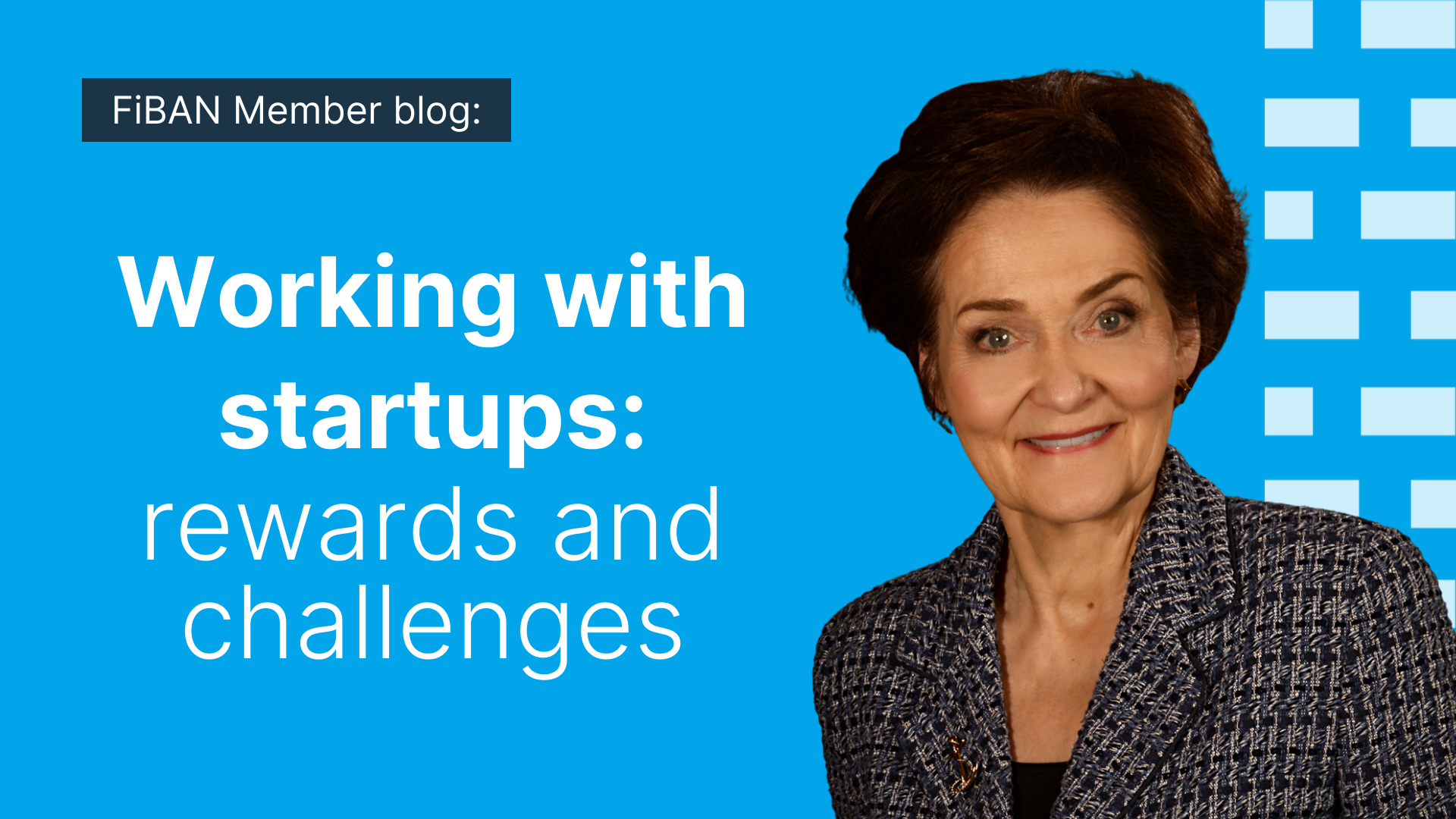
I stepped into the startup world after 30 years in international business in large-cap corporations and after seven years on the Board of Directors of a Finnish private equity company. That was in 2013. Originally, I was looking for new types of investment targets but was soon fascinated by the dynamism, quick decision making, and close co-operation with customers in startups. I felt like being one step ahead when working with startups. I have also met great personalities beyond compare. In the following, I want to share some of my main learnings so far.
I felt like being one step ahead when working with startups.
Ainomaija Haarla
To start with, I will give my definition of a business angel. He or she is a private person who invests her/his accumulated learnings, time and money in young unlisted growth companies. In such companies, there is a lot of use for different skills whether they stem from businesses or Board of Directors or Advisory Board work or national or foreign networks, in addition to money. An angel investor does not normally have her/his own organization. A syndicate, a group of like-minded private investors, functions in this role when for example evaluating investments targets.
“An angel investor is often the first external believer”
What then is the motivation to become an angel investor? There can be many types of drivers, for example, a new use of the investor’s accumulated skills; a desire to stay informed about the newest developments, that is curiosity; a new window to what is happening in the world; or a desire to save the planet by sharing one’s accumulated knowledge. One may also want to get a deeper insight into her/his hobby. Another may want to support a recognized talent in a university and a novel science-based discovery. Numerous valuable inventions are born in doctoral dissertation processes but their utilization and further development of innovations are still unfortunately rather arbitrary. A scientist would need a serial entrepreneur to go side-by-side in order to turn discovery into practice. Startup investing can also be a means of diversification in family offices, a risky one among alternative investments but the one which you can follow from a close distance.
To create substance and value is so rewarding. An angel investor is often the first external believer. I proudly carry this designation as given by a founder of a startup. Although it is often a question of sharing learnings, giving back and feeling to have done meaningful work in a situation where time and money are available, an ultimate target, however, is to succeed financially.
“Capabilities of the team is the key success factor”
How to pick up then a suitable investment target for you, an angel investor, to meet your own investment targets and to complement your portfolio? Drivers can be many as indicated before. An investor, of course, measures and counts numerous things. Numbers are important, but that is not all. After you have got a set of numbers in front of you is the time that the real work starts, that is evaluation and valuation. You may have got the references regarding a founder, too, a list of previous bosses, subordinates and co-operation partners for interviews. This does not, however, give a proper picture of a founder in her/his new role as an entrepreneur. Another crucial issue will be as well how convincing a founder will be when dealing with potential customers. Is this person capable of gaining the trust of international customers, too?
It is somewhat difficult to evaluate the full potential of the founder(s) and the whole team, although this is crucial for the success of a startup. Success very much depends on the potential of key people. The skills and capabilities of the core team is the key success factor. According to my experience, at least the following personal characteristics are required from a startup founder: an ability and a will to take risks, braveness, persistence, resilience, ability and will to delegate, implementation skills, a strong belief in one’s own ability, flexibility and agility and, above all, the mentality of a continuous learner. The list is long only because the task is demanding! An angel investor normally has patience and tolerance and can help to smooth a bumpy road with her/his expertise.
An angel investor should be able to evaluate, ideally in advance, possible pitfalls in the collaboration with an entrepreneur. Is the entrepreneur really ready and willing to take a value-adding investor onboard, communicate openly and in real-time, ready to discuss strategically and take advice, and organize governance in a proper way? Or is she/he only interested in investing money?
For a startup entrepreneur, it is similarly important to find a suitable investor. Business philosophies and values need to match and a startup company culture should be such that an angel investor can accept it. Communication between an angel investor and an entrepreneur must be seamless. Time spent together will mitigate possible challenges.
It is the dynamism of a startup, an inspiring team, a solution-driven and customer-oriented approach which enchant me most as a business angel.
Ainomaija Haarla, D.Sc. (Tech.), MBA
Finnish Business Angel of the Year 2020
Business Angel Exit of the Year 2016 for Gold&Green Foods